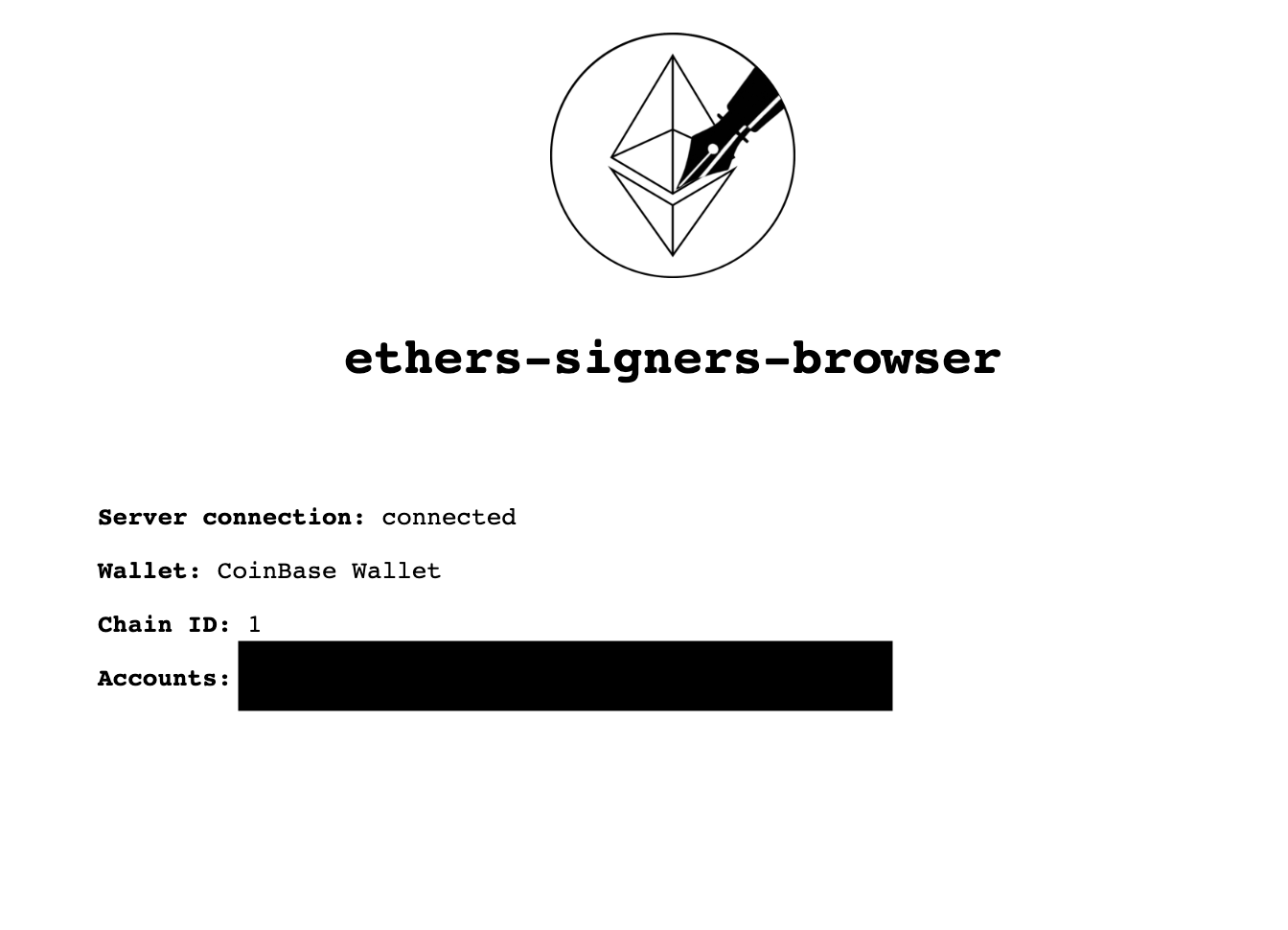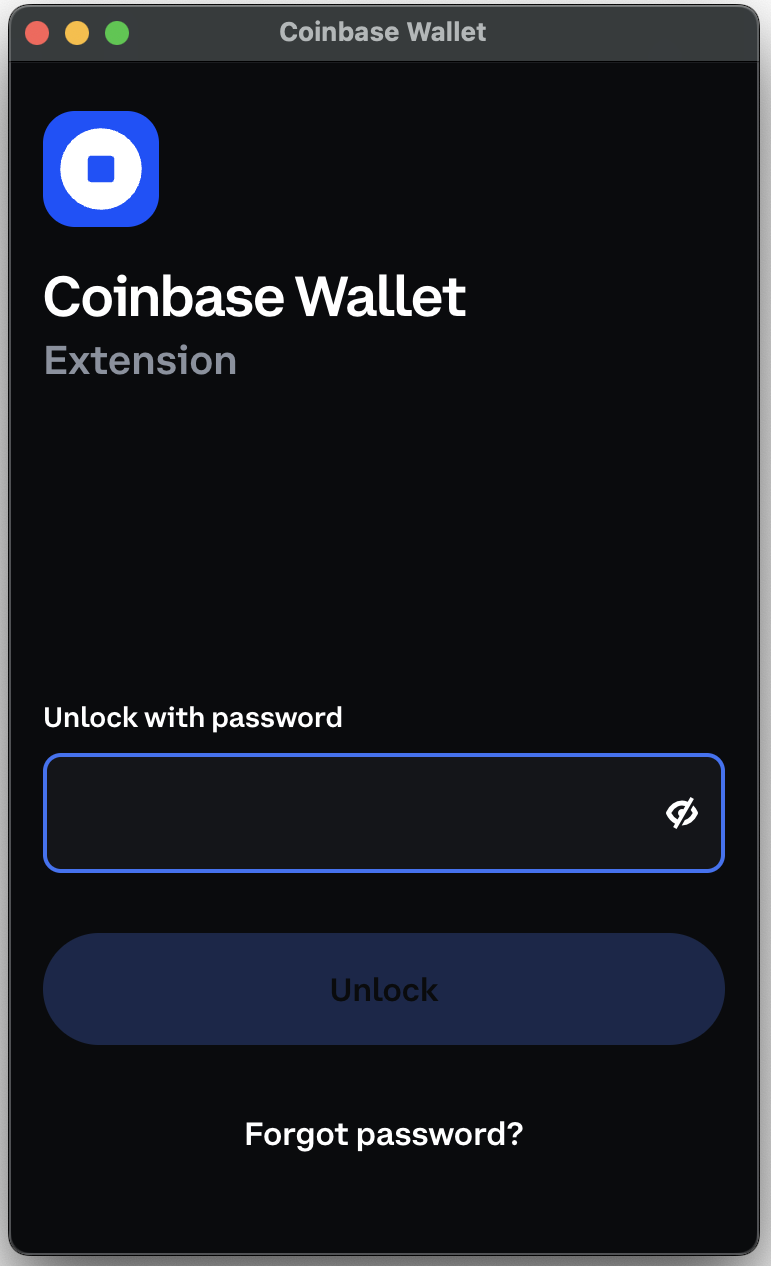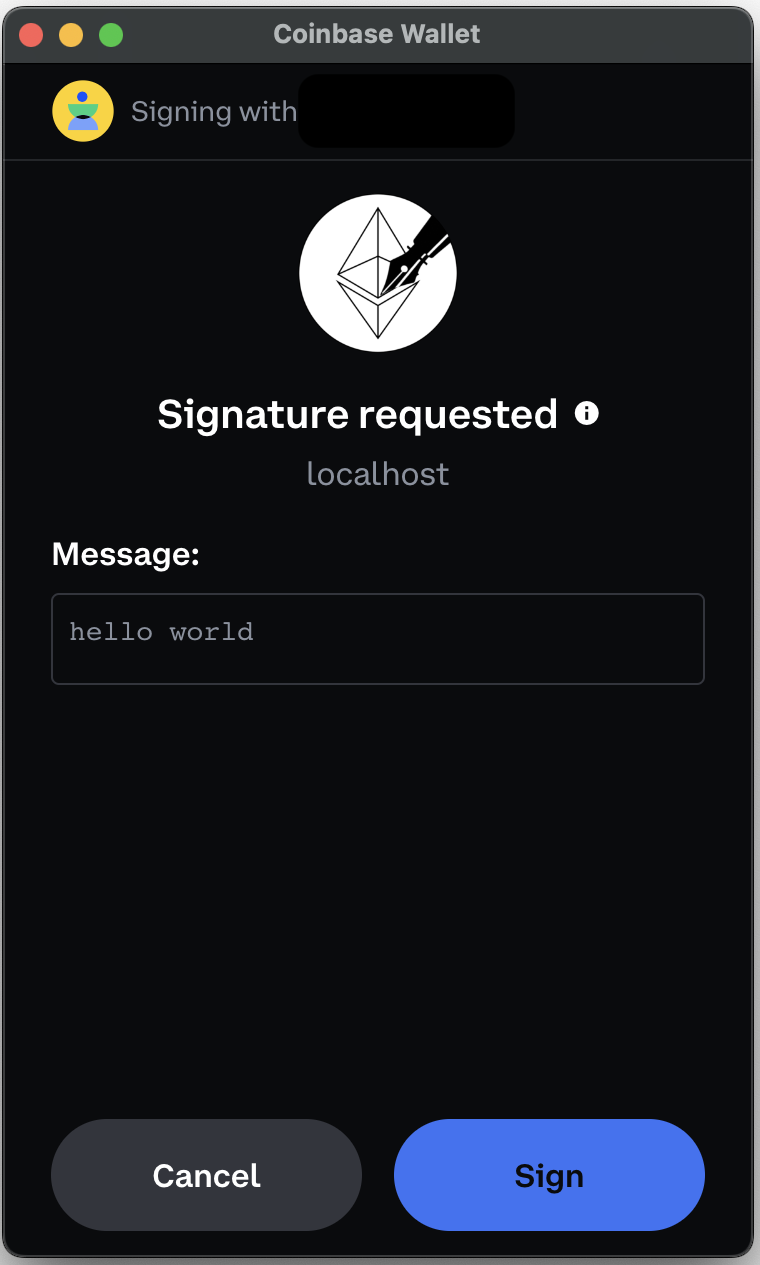

A ethers-signers-compatible Signer which uses the browser's window.ethereum object to sign transactions, allowing you to use your Coinbase Wallet, MetaMask, or other browser-based Ethereum wallet from the comfort of the CLI.
For more information about how to use a signer, please refer to the ethers-rs book.
bash
cargo add ethers-signers-browser
toml
ethers-signers-browser = "0.1.0"
```rust,norun use ethers::{core::{k256::ecdsa::SigningKey, types::TransactionRequest}, signers::Signer}; use etherssigners_browser::BrowserSigner;
// instantiate the wallet with a chain id, // you will be prompted to unlock your wallet in the browser let wallet = BrowserSigner::new(0).await?;
// create a transaction let tx = TransactionRequest::new() .to("vitalik.eth") // this will use ENS .value(10000).into();
// sign it, again, you will be prompted to sign it in the browser let signature = wallet.sign_transaction(&tx).await?;
// can also sign a message, again, you will be prompted to sign it in the browser let signature = wallet.sign_message("hello world").await?; signature.verify("hello world", wallet.address()).unwrap();
```
Let's say you were running the following code:
```rust,norun use ethers::signers::Signer; use etherssigners_browser::BrowserSigner;
let signer = BrowserSigner::new(14).await.unwrap(); let message = "hello world".asbytes(); let sig = signer.signmessage(&message).await.unwrap();
```
When the BrowserSigner is created, your browser will open a page and prompt you to unlock your wallet. The URL will look something like this: http://localhost:PORT/?nonce=NONCE where PORT and NONCE are random numbers, e.g. http://localhost:7777/?nonce=123.
You will then see the following page:

And, probably at the same time, a popup from your wallet:

Once you have unlocked your wallet, your code will continue to run until it reaches sign_message, after which you will be prompted to sign the message:
